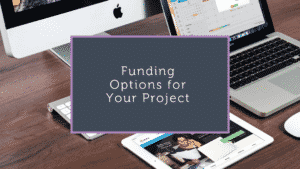Some of the best grant opportunities don’t make it to public announcements. We see so many “closed”, or “invitation-only” grants open and close each month.
Sometimes, before funding bodies update their website news page and social media posts with new grant programs, they’re in discussion with industry contacts, regional partners, and professional networks. By the time the public hears about these opportunities, the well-informed applicants are already preparing their responses and have done three weeks worth of research.
This article is all about how to utilise human networks and connections to create funding strategies for your company or organisation.
Firstly, take 10 minutes and think about the organisations you’re already connected to. Your industry association. That regional business group you occasionally attend. The professional membership you maintain but rarely utilise. These connections are sitting on grant intelligence goldmines.
Industry bodies often receive early briefings about upcoming funding programs, and regional development groups often know which government priorities will translate into grants months before applications open. Professional associations sometimes partner directly with funding providers to design programs for their members.
Our advice is to contact your existing professional membership organisations and ask specifically about their grant notification processes. Many maintain mailing lists specifically for funding opportunities, some offer member-only briefings about upcoming programs, whilst others could even set up direct introductions to relevant funding bodies.
If you’re not getting grant notifications from your professional networks, you could be missing critical intelligence that your competitors might already have.
Local Government offices and organisations like Regional Development Australia exist to support local economic growth; your success directly contributes to their performance metrics. These local champions understand your regional challenges and opportunities. They can help you understand how to position your project to align with regional priorities which is key to creating a good grant application that has the best chance of winning funding.
Having real conversations with your local offices leads to insights that often only professional grant writers bother to learn. These include: What challenges is your region trying to solve? Which economic development goals are receiving government attention? How can your project contribute to these broader objectives? Building relationships with these types of organisations provides funding intelligence and strategic context that makes applications successful.
It’s important to remember that all organisations are made up of human beings. Departmental staff for funding bodies are generally helpful and knowledgeable and they want to see good applications succeed because successful programs make their jobs easier and the world a little brighter. They’re often willing to provide guidance about upcoming opportunities or suggest alternative programs you hadn’t considered.
This approach requires some preparation. Research which department oversees your sector before calling. Prepare specific questions rather than asking vague requests for “any available grants.” Be respectful of their time and expertise.
The worst outcome is they can’t help immediately. The best outcome is you develop a contact who can provide ongoing intelligence about relevant opportunities.
Professional grant writers maintain extensive networks within funding ecosystems. We know which departments are developing new programs, understand how funding priorities shift over time, and hear about opportunities through multiple channels because this intelligence is essential to our work.
Establishing relationships with professional grant writers can provide access to information networks you couldn’t build individually. Consider grant writers as potential allies rather than just service providers. At Whitney Consulting, as well as exceptional writing skills, we can also provide basic project planning advice, and ideas that you might not have considered to save time, money, and stress. But we can only do all of that if we know who you are, how you work, and what your goals and strategies are – and often that all starts with a good old-fashioned chat!
Building Your Funding Advisory Network
Long-term grant success comes from building relationships, not just finding individual opportunities.
Consider developing informal advisory relationships with people who understand your sector’s funding landscape. This might include:
- Industry association representatives who track policy developments
- Regional development officers who understand local economic priorities
- Successful grant recipients who can share insights about effective approaches
- Professional grant writers who can provide strategic perspective
- Government program managers who design funding initiatives
These relationships develop gradually through genuine engagement rather than transactional requests for information. Attend industry events. Participate in regional business forums. Engage with policy consultations. Contribute to professional discussions. Focus on engaging authentically with your professional community in ways that naturally provide access to funding intelligence.
Yes, building these human connections takes longer than setting up digital alerts, but the intelligence you gain is often more valuable and certainly more nuanced than what automated systems can provide.
Don’t forget to sign up for our newsletter here and get a whole heap of grants sent straight to you each month. It’s free and there’s no obligation to sign up for any of our services. We just want to connect more people with more funding opportunities as we know how lifechanging it can be for both business and community growth.




